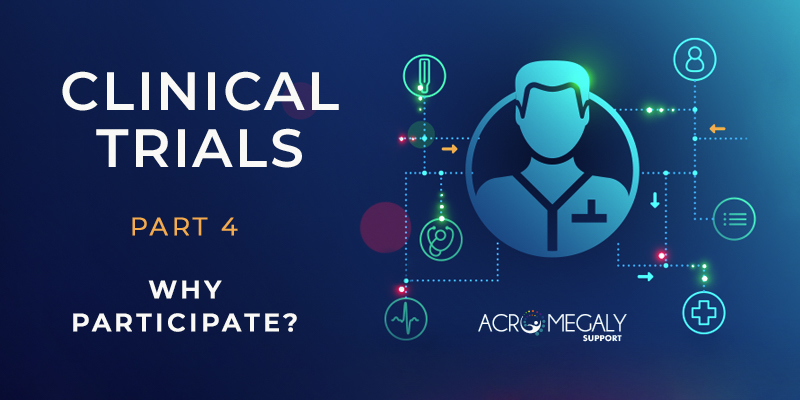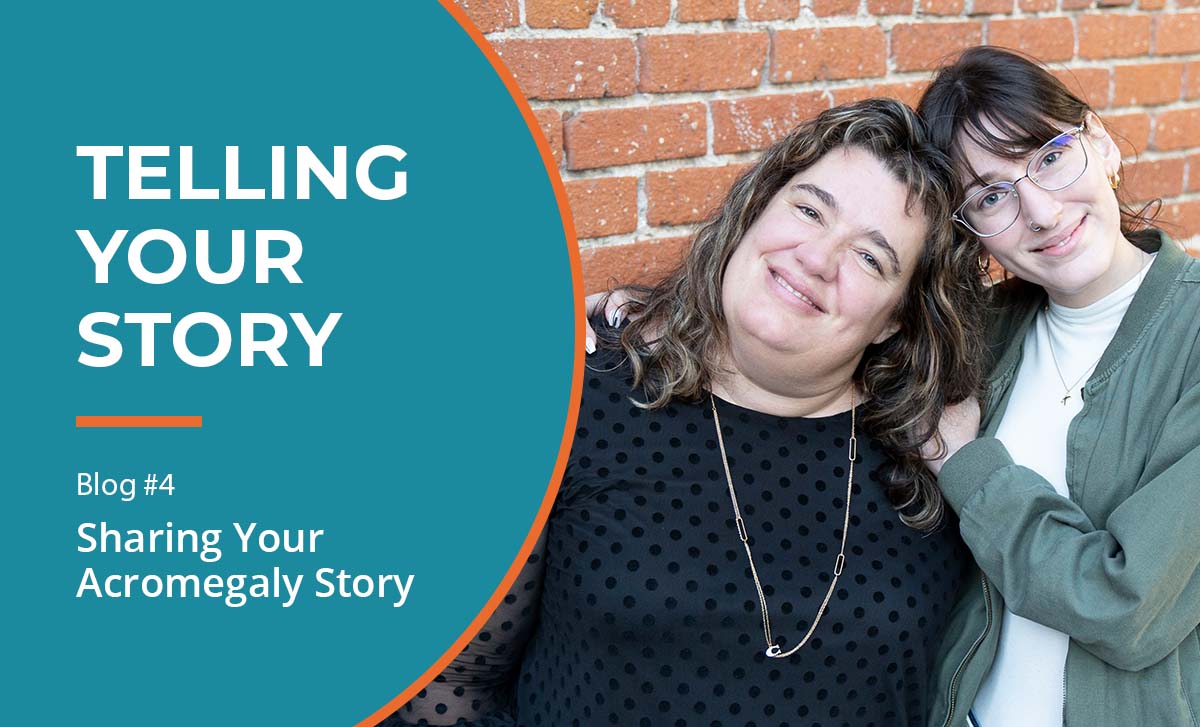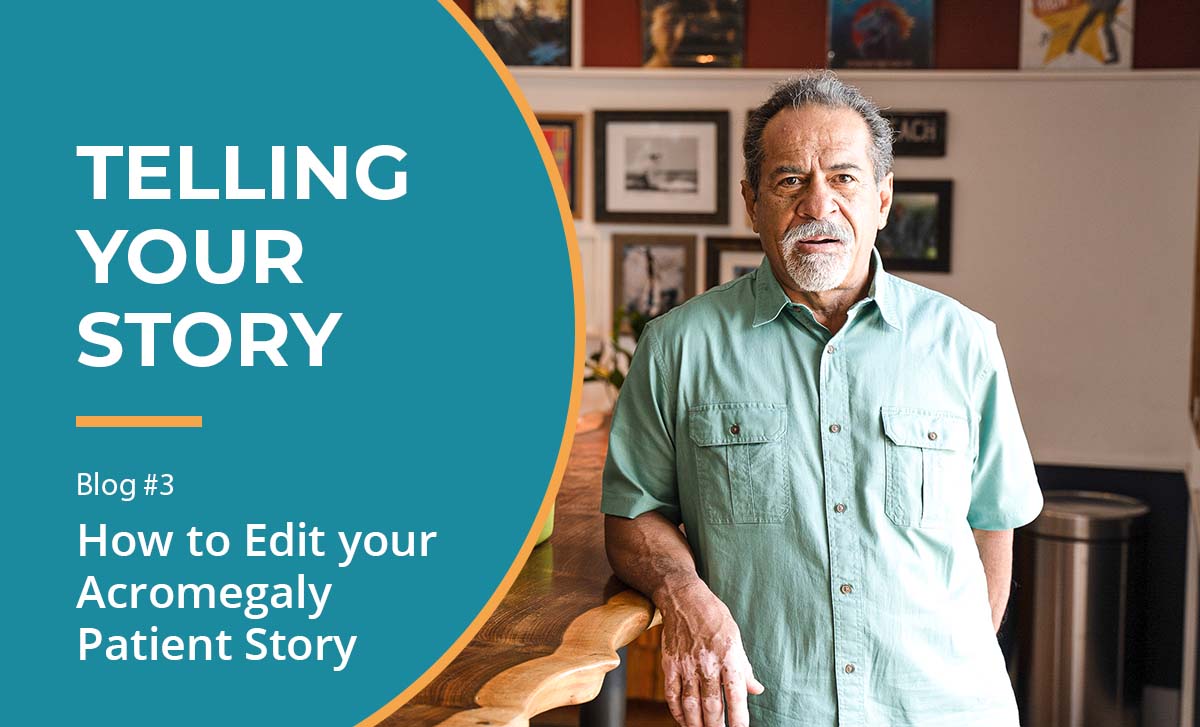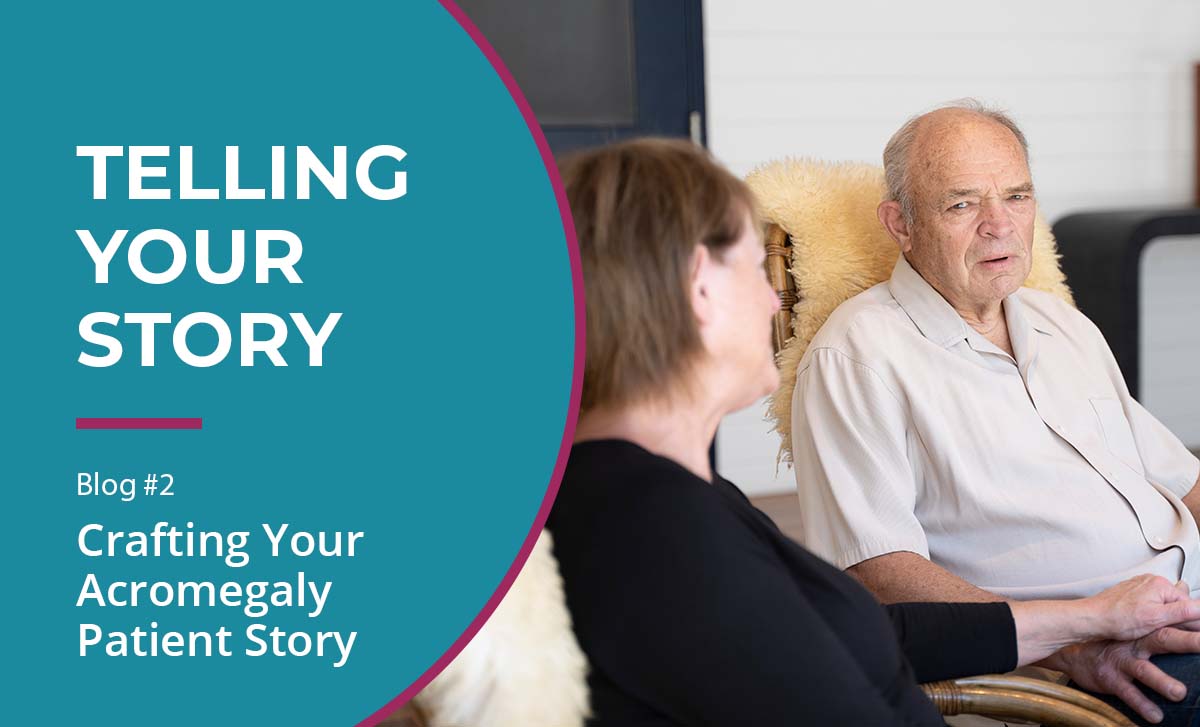
Clinical Trials Part 4 – Reasons People Choose to Participate
This 4-part series explains what clinical trials are, how they’re run, what all the unfamiliar terminology means, and why people choose to participate in trials. We also include helpful resources to learn more.
Now we come to a critical part of our discussion of clinical trials: the people who actually swallow the pills, or take the shots, or agree to do whatever the researchers ask them to do as part of the study.
Participation in a clinical trial is an extremely personal decision that most people make only after talking it over with their relatives, close friends, and their doctors. There are as many reasons to do it as there are people who ultimately enroll.
For many people, one way of arriving at a Yes decision is to remember that the ultimate goal in clinical trials is to improve health outcomes. With this in mind, for people living with a rare disease like acromegaly, clinical trial participation can be:
- An opportunity to try new therapies that aren’t yet approved
- A chance to engage more frequently with physicians (including leaders in the field)
- A way to contribute to research that could ultimately improve their own condition
- A way to help others in the future
Other reasons people choose to participate include:
- Current treatments haven’t worked for them
- They suffer from side effects from their current treatment that have a negative impact on their quality of life
- A feeling of obligation or a core-deep motivation to do all they can to alleviate or conquer their disease/condition
Are Clinical Trials Safe for Participants?
Like any medical procedure, all clinical trials come with risks. The safety and efficacy of a new drug is not fully known when the trial starts. Each person must come to their own conclusion as they weigh the potential benefits of participation against any risks.
There are several ways researchers, doctors, and trial sponsors can explain risk in clinical trials.
Informed Consent
- All of the risks and requirements associated with a trial must be presented, understood, and accepted by all participants prior to the start of the study.
Continuous Monitoring
- Each trial is carefully monitored by an ethics committee (also called an Institutional Review Board, or IRB) as well as by regulatory agencies (like the FDA). This is to ensure patient safety stays the top priority.
Rescue Procedure
- If any participant shows a decline in health, “rescue” procedures may be in place to ensure appropriate therapies are provided.
Participant Free Will
- Participants can withdraw from the study at any time, even after providing their informed consent. Unpleasant side effects, ineffective treatment are two reasons someone may choose to withdraw.
So that, in four nutshells, is what clinical trials are about.
Patients and families affected by rare diseases like acromegaly know all too well the challenges of managing symptoms and maintaining a good quality of life when treatment options are scarce, inconvenient, and/or painful. For these patients and countless others, clinical trials are key to the discovery of new treatments.
If you’re considering participating in a clinical trial, your doctor may be able to suggest an appropriate study for your condition. We also encourage you to explore the resources listed to learn more.
Clinical Trial Resources
If you’re thinking about participating in a clinical trial, PATHFNDR is now enrolling patients to evaluate the safety and efficacy of paltusotine, an investigational drug for the treatment of acromegaly.
CLICK HERE to learn more about the study and the eligibility requirements.
![]()
- This database of privately and publicly funded clinical studies conducted around the world is one of the best resources available. You can search by disease, country, and other key filters to find a trial that may be right for you. The site includes a good list of questions to ask when considering participating in a clinical trial. See them here.
Deciding to participate in clinical trials
- Animation and easy-to-understand language make this video from the Office for Human Research Protections (OHRP) a must-see for any potential trial participant.
- Another OHRP video addresses randomization. Watch it here.
A participant’s first-hand account
- Watch Juliana’s story about her experience participating in a trial for sickle cell anemia
References
National Institutes of Health (2015, August 20) Clinical Trials [https://www.nih.gov/research-training/clinical-trials]. Retrieved May 2020.
U.S. Food and Drug Administration (2018, January 04) Step 3: Clinical Research [https://www.fda.gov/patients/drug-development-process/step-3-clinical-research]. Retrieved May 2020.
ClinicalTrials.gov (2019, March) Learn About Clinical Studies [https://clinicaltrials.gov/ct2/about-studies/learn]. Retrieved May 2020.
National Health Service (2019, May 08) Clinical trials [https://www.nhs.uk/conditions/clinical-trials/]. Retrieved May 2020.
UptoDate. Patient education: What are clinical trials? (The Basics). Topic 16168 Version 11.0



